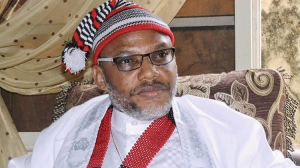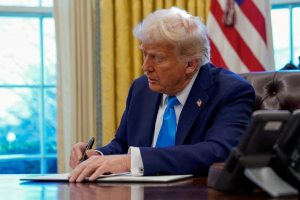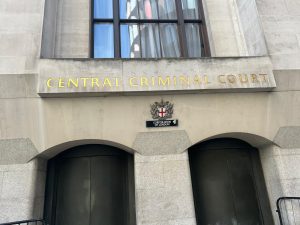Lagos, Nigeria – 13 July 2025
In a bold move to combat corruption and promote transparency in Nigeria’s oil sector, the Socio-Economic Rights and Accountability Project (SERAP) has filed a lawsuit against the Nigerian National Petroleum Company Limited (NNPCL) for failing to account for over N825 billion (approximately £640 million) and $2.5 billion allegedly missing from funds earmarked for refinery rehabilitation and repairs. The action comes amid growing concerns over the mismanagement of public funds in the country’s beleaguered oil industry, which has long been plagued by inefficiency and scandal.
The suit, filed last Friday at the Federal High Court in Lagos under number FHC/L/MISC/722/25, stems from damning revelations in the 2021 audited report by the Auditor-General of the Federation, published on 27 November 2024. SERAP argues that the unaccounted funds represent a “grave violation of the public trust” and contravene provisions of the Nigerian Constitution, national anti-corruption laws, and the country’s international obligations.
“The grim allegations by the Auditor-General suggest a serious breach that undermines economic development, traps the majority of Nigerians in poverty, and contributes to high levels of deficit spending by the government,” SERAP stated in its filing. The organisation further contends that granting the requested reliefs would “strike a blow against the impunity of those responsible” and ensure the recovery of the funds for the benefit of ordinary Nigerians, whom it describes as the “victims” of NNPCL’s failures.
The Auditor-General’s report details a litany of unaccounted expenditures and revenues, painting a picture of systemic financial irregularities within the NNPCL. Key highlights include:
Over N82 billion (N82,951,595,510.47) deducted from crude oil and gas sales between 2020 and 2021 for refinery rehabilitation and repairs, with fears that the money may be missing. The Auditor-General has called for its recovery and remittance to the Federation Account.
More than N343 billion (N343,642,598,726.51) in proceeds from domestic crude sales, unilaterally deducted for pipelines maintenance and management costs, potentially diverted.
Approximately N83 billion (N83,659,813,739.99) in miscellaneous income from NNPC joint venture operations withdrawn from a Central Bank of Nigeria sinking fund account between 2016 and 2020, leading to increased federal borrowings.
Over N204 billion (N204,853,744,047.39) in unjustified deductions from oil royalties due to the Nigerian Upstream Petroleum Regulatory Commission (NUPRC) in 2021, suspected to have been diverted.
Smaller but significant sums, such as N3.7 billion (N3,748,581,281.27) paid as a shortfall on petrol cargo sales, N28 billion (N28,654,179,867.00) in outstanding bridging allowances from NNPC retail, and N13.5 billion (N13,559,658,148.91) from major oil marketers.
On the dollar front, over $29.6 million ($29,648,970.36) in outstanding royalties payable to the Department of Petroleum Resources, plus uncollected royalties exceeding $2 billion ($2,260,448,992.45) and N48 billion (N48,218,163,192.67) from oil companies in 2021.
SERAP emphasised that the vast majority of Nigerians have derived “little benefit from their country’s oil wealth,” even as the NNPCL continues to falter in accounting for billions desperately needed to repair or replace dysfunctional refineries. The organisation is seeking court orders to compel the NNPCL to recover and remit the missing funds, identify those responsible, and hand them over to anti-corruption agencies like the Economic and Financial Crimes Commission (EFCC) and the Independent Corrupt Practices Commission (ICPC).
This lawsuit gains additional urgency in light of recent comments by Aliko Dangote, president of the Dangote Group and Africa’s richest man. Speaking last week, Dangote expressed scepticism about the viability of Nigeria’s state-owned refineries, stating: “As of today, they have spent about $18 billion on those refineries, and they are still not working. I doubt very much if they will ever work.” His remarks highlight the chronic underperformance of facilities like those in Port Harcourt, Warri, and Kaduna, which have undergone repeated “turnaround maintenance” without yielding operational results.
Dangote’s own $19 billion refinery in Lagos, which began operations in 2023, stands in stark contrast, producing petrol, diesel, and aviation fuel for domestic and export markets. However, his comments have reignited debates over why billions poured into NNPCL-managed refineries have yielded no tangible benefits, fuelling calls for privatisation or greater accountability.
The NNPCL has not yet issued a public response to SERAP’s latest lawsuit. However, the company has faced similar scrutiny in the past, including a June 2025 Senate probe into N210 trillion in unremitted funds where it requested a two-month delay to respond, drawing criticism for apparent evasiveness. In earlier cases, such as a January 2025 demand by SERAP for details on N825 billion and $2.5 billion in missing refinery funds, the NNPCL did not provide substantive explanations, leading to ongoing legal battles.
Experts argue that such allegations exacerbate Nigeria’s economic woes, including fuel shortages, rising inflation, and a heavy reliance on imported petroleum products despite being Africa’s largest oil producer. The government, under President Bola Tinubu, has pledged reforms in the sector, but critics like SERAP insist that without swift action to recover lost funds and prosecute offenders, public trust will continue to erode.
As the case proceeds, it could set a precedent for holding state-owned enterprises accountable, potentially forcing the NNPCL to overhaul its financial practices. Nigerians, many of whom endure poverty amid oil wealth, will be watching closely for justice to prevail.






